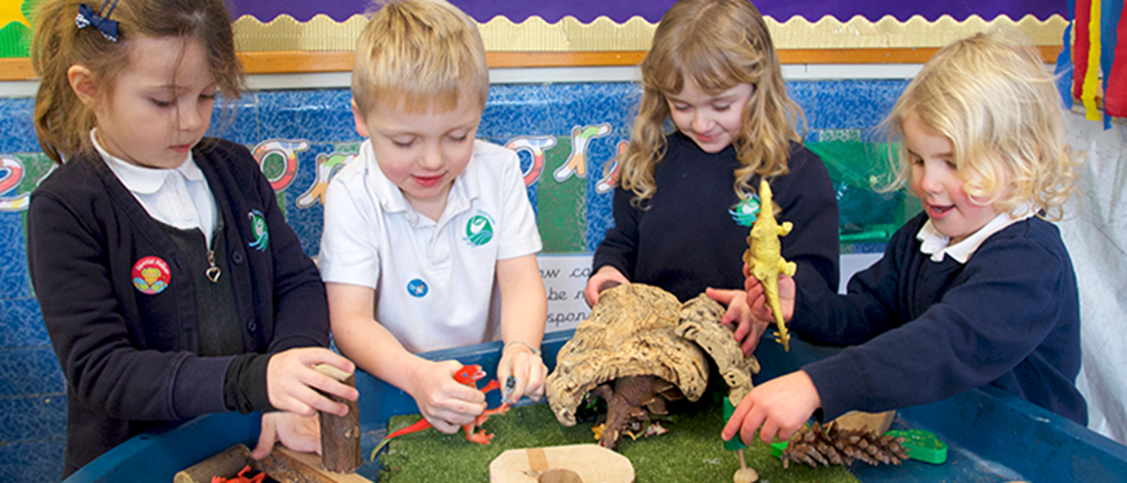
EYFS
Early Years Foundation StageWelcome to Riverside Primary school.
In the Early Years Foundation Stage at Riverside Primary school, our aim is to give your child the best possible start to their learning journey. From our whole school motto of ‘Believe and Achieve’ to our 6R’s and Early Years practical learning we hope to demonstrate to you how we intend to support your child to be happy, resilient and inquisitive to learn and grow emotionally, academically and socially.
Vision and aims:
At Riverside we want your child to
· ‘Believe and achieve’ in all that they do.
· Become happy, confident and kind individuals that demonstrate our 6R’s of resilience, respect, reciprocity, resilience, resourcefulness and reflection in whatever they do, however they learn and whatever they say.
· Learn in a way that develops independence, inquisitiveness and a continual thirst for knowledge in a practical, fun and exciting way.
· Be prepared for their future learning journey.
Teaching and learning:
At Riverside we want your child to learn through:
· A carefully planned curriculum based around the 7 areas of learning: Communication and Language, Personal, Social and Emotional development, Physical development, Literacy, Mathematics, Understanding of the World and Expressive arts and design. With explicit, daily teaching of Phonics through the Little Wandle programme of study.
· A curriculum that builds on the children’s existing knowledge, working on a cyclical basis to ensure that key knowledge is embedded in long term memory and lays the foundation for future learning.
· A balanced curriculum that recognises the importance of adult led teaching, child-initiated learning, the power of learning both indoors and out and then through purposeful trips, external visitors, community links and practical experiences enhance learning further.
· Practical, hands on, play based learning that will not only develop academic progress but improve language skills, promote friendships and create a happy and positive environment in which to learn.
· A safe, caring environment that encourages your child to learn in their own way with the support of amazing staff who are always there to offer guidance and support when needed.
· A holistic approach that recognises that not all children are the same due to cultural, ethnic, gender, ability, medical or faith needs. At Riverside, we aim to reduce those barriers to learning by encouraging all children to do their best whatever that may be and however that may look.
· A literacy rich curriculum that helps to develop a love of reading, words and language. Whatever the area of learning we use books to excite the children, to explain learning and to captivate the children to want to know more.
“Based on these calculations, here’s how many words kids would have heard by the time they were 5 years old:
· Never read to, 4,662 words;
· 1-2 times per week, 63,570 words;
· 3-5 times per week, 169,520 words;
· daily, 296,660 words; and
· five books a day, 1,483,300 words.”
Science Daily, University of Ohio, 2019
Overall, at Riverside, we want to work together with you as the parents to create the best possible start for your children. We recognise that you are the main care givers and have your child’s best interest at heart. We at Riverside also want the best for your children. Together we are stronger and anything is possible!
“Believe and Achieve”

